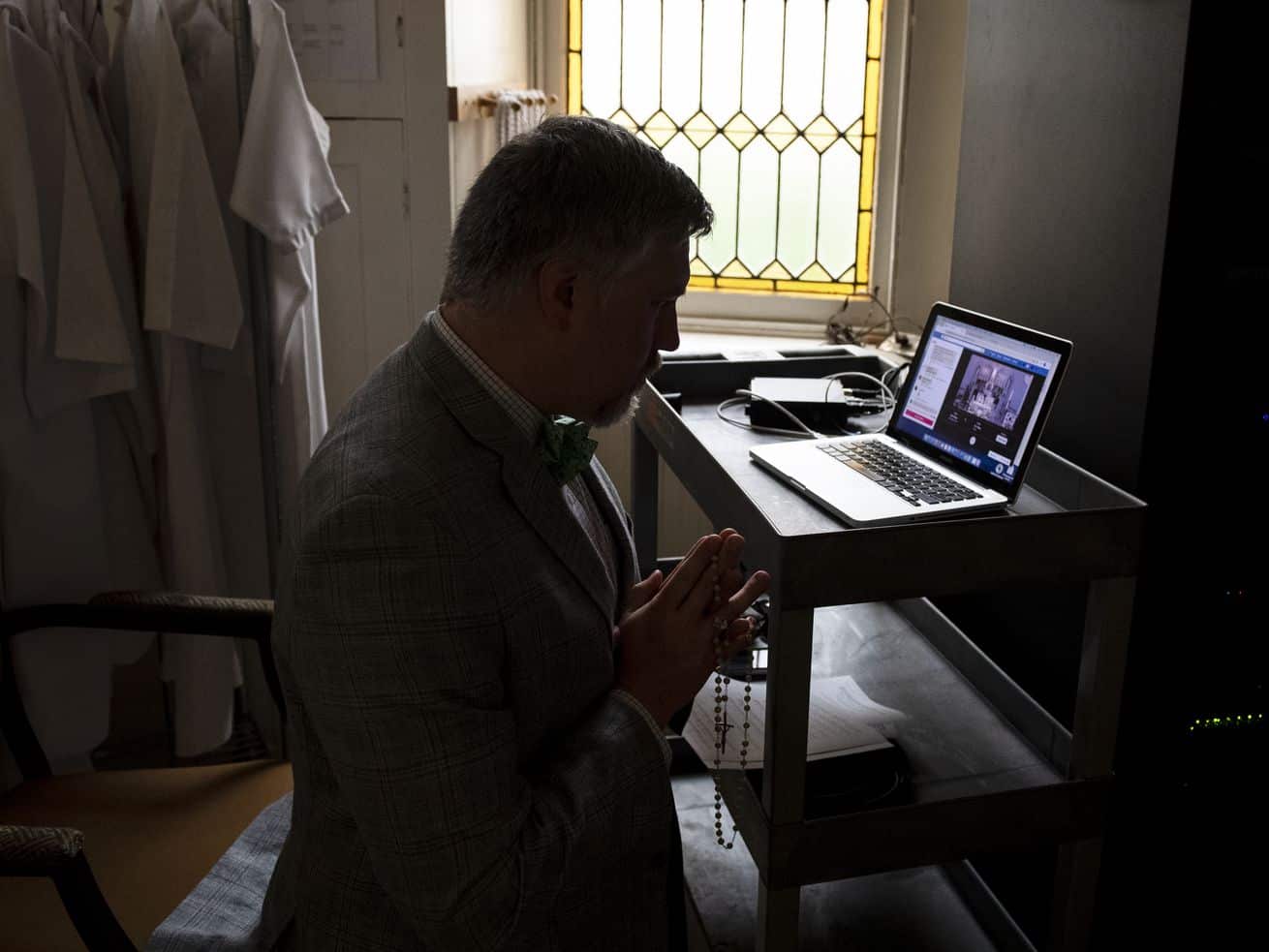Lower-income Americans are way less likely to have broadband.
Home broadband is more important than ever. It’s also seemingly a luxury good.
Just over half of Americans making less than $30,000 a year have home broadband, a service that’s increasingly important for numerous aspects of life, from school to work to socializing. A much higher 92 percent of households bringing in $75,000 or more per year have home broadband, according to a new survey by Pew Research Center.
“That gap has been persistent even as the number of people who live in poor households has gone up over the years,” according to Lee Rainie, director of internet and technology research at Pew, which has been surveying broadband access for two decades.
Broadband access varies by other demographic factors as well. People without college degrees were less likely to have broadband than people with more education. Black and Hispanic people were less likely to have it than their white counterparts. But income was one of the most important determinators as to whether or not people had broadband.
/cdn.vox-cdn.com/uploads/chorus_asset/file/22552701/4WuM8_share_of_us_adults_with_home_broadband.png)
That’s due to the high cost of internet in the United States — about $60 a month — which is more than many Americans can afford. Nearly half of those without broadband don’t have it because they say it’s too expensive, according to the survey. Broadband in the US is more expensive than in many other developed nations.
The crux of the issue is that the US is very large and building out internet infrastructure is expensive, so internet companies are more likely to do so in areas where there are lots of paying customers: wealthier and populous areas. Since internet companies are not regulated like utilities, they have little economic incentive to build out internet to isolated or poorer areas, where there are fewer customers or at least fewer customers who can afford it. The result is a digital divide, in which many poorer and more rural Americans lack access to broadband internet.
The issue is not new, and there have been numerous efforts to ameliorate the situation from a policy standpoint, including subsidizing broadband, making broadband a utility, and going forward with Biden’s infrastructure plan, which includes investing billions in publicly funded internet. The Federal Communications Commission (FCC), which had in the prior administration pushed to deregulate the internet industry, has even awarded Elon Musk’s SpaceX lots of money in the hope its satellites can help close the digital divide.
Of course, there’s a lot of distance between good intentions and cheaper internet.
In the meantime, about half of those without broadband say they can do everything they need to do online with their smartphone. Some 15 percent of Americans own a smartphone but don’t have a broadband connection, and this group has lower income and less education than people who aren’t dependent on smartphones for internet. Lower-income Americans are more likely to have a smartphone than home broadband (76 percent compared with 57 percent, but they’re still less likely than higher-income people, 96 percent, to own one).
But a smartphone doesn’t have anywhere near the number of capabilities as a computer with broadband.
“In most cases, it’s easier to use a bigger screen with a connected computer than it is to use a smartphone,” Rainie said. “If you don’t have [a computer with broadband], you’re not really plugged into the modern economy,” he said, pointing to how important having a computer with broadband is for things like applying for a job. “The data shows you’re not capable of being the kind of social, political, and economic actor that people who have broadband are able to be,” he added.
That became particularly apparent during the pandemic, when many of the things we used to do in person had to be done online, and when video capabilities — which require a lot of bandwidth — became exceedingly important. Indeed, another Pew study found that the share of Americans who consider access to high-speed internet to be the government’s responsibility jumped 15 percentage points — by far more than any other topic — compared to before the pandemic.
And the necessity of home broadband will remain elevated after the pandemic is over, as many of those activities — work, education, doctors appointments — could move online permanently, at least some of the time. And as they do so, the necessity of having home broadband will become more obvious.
Author: Rani Molla
Read More



